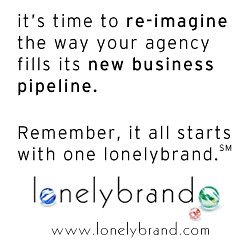 As companies struggle to enter the social space, significant investments are being made to both create a presence on and maintain a presence in social networks. The value of these networks is obvious: millions of engaged target audience members sharing information and communicating on a scale never before seen. But how can a brand understand the relative value and public perception of a social network without expending resources entering the space?
As companies struggle to enter the social space, significant investments are being made to both create a presence on and maintain a presence in social networks. The value of these networks is obvious: millions of engaged target audience members sharing information and communicating on a scale never before seen. But how can a brand understand the relative value and public perception of a social network without expending resources entering the space?There exists a paradox in social networking that has big implications for brands. There appears to be an inverse relationship between the daily relevance a social network has to the public and the amount of revenue it generates. Attempts to monetize create a tailspin of waning interest that eventually results in the collapse or re-engineering of the network itself.
Understanding where a social network is in the cycle of popularity can mean the difference between starting a strategy that is doomed from inception or growing constructively with a network.
Twitter, for example, is currently exploring ways to generate revenue. Some believe Twitter is already peaking in daily relevance. My assertion, however, is Twitter will be relevant for some time to come.
Marketers would be well advised to partner with an agency or consultant that understands this relationship - both where a social network is positioned and how consumers perceive that network.
I'm still working out the details of this visual - your comments are welcome!
Interact With ADMAVEN on Twitter
PEOPLE WHO READ THIS ARTICLE ALSO READ:
> Twitter Is Peaking, If It Hasn't Already - Steve Rubel at 140 Characters Conference














 The Cancun search seems to be a tie. Both search engines list Tripadvisor as the first result with a smattering of other sites below. Although Google includes deeper content links the parent link seems to be most relevant.
The Cancun search seems to be a tie. Both search engines list Tripadvisor as the first result with a smattering of other sites below. Although Google includes deeper content links the parent link seems to be most relevant.







